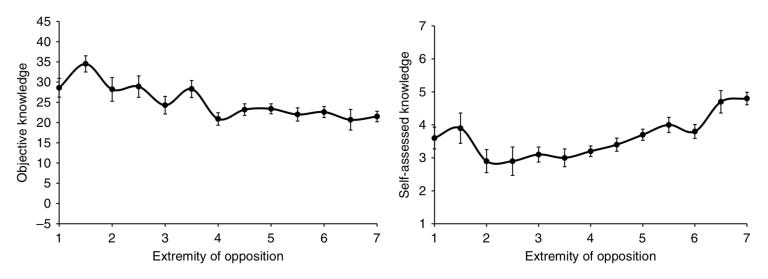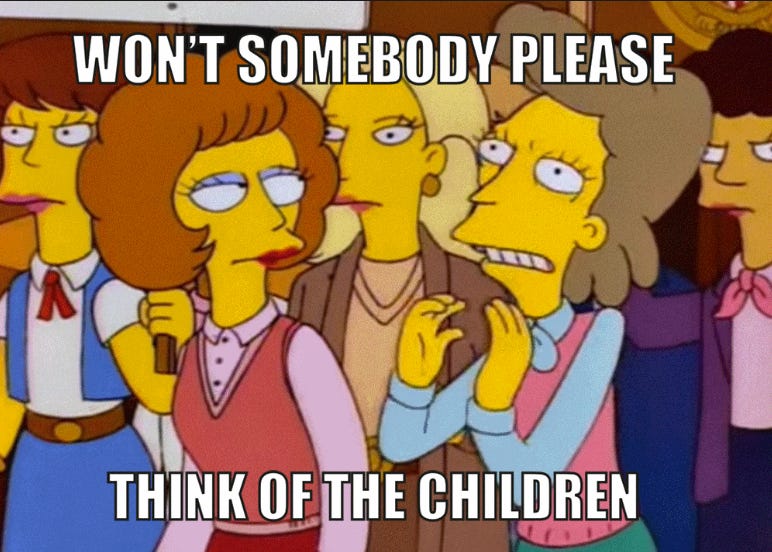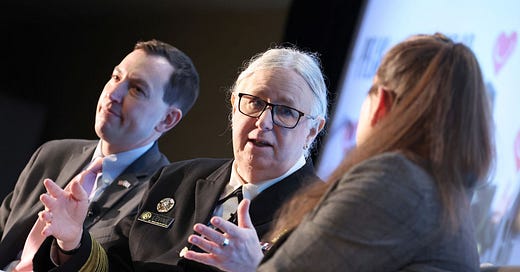
Catching Up: Gender Dysphoria, GMOs, And More Young-Adult-Fiction Twitter Immolation
Hot take: It is bad when angry people on Twitter get books unpublished

“Manners and Morals: In Binghamton, N.Y., Students of St. Patrick’s parochial school collected 2,000 objectionable comic books in a house-to-house canvass, burned them in the school yard.” - Time Magazine photo and caption from 1948, via the Comic Book Legal Defense Fund
As you’ve possibly noticed, I’ve changed up the structure of Singal-Minded a bit lately — each post has basically just been about one thing, a column more or less. I made that change based on some helpful feedback I got, and I think it makes sense going forward: Some posts will be column-ish (or interview-ish, whenever I finally figure out an interesting Q&A to do), while others, like this one, will be a bit more of a grab bag. I’ll try to relegate announcements and administrative stuff to the grab-bag ones, whenever possible.
Gender Clinicians, Shockingly, Have Nuanced, Important Thoughts on Gender Dysphoria
Whenever I complain about the depressingly subpar coverage of gender dysphoria in American journalism — last kvetched-about here — I say the same thing: Just call gender clinicians! There are a ton of them simply trying to keep their heads down and do good work as their field gets increasingly intense and politicized, and many have views that are quite different from what you’ll hear if you only speak with trans activists and advocates, or to the small subset of celebrity clinicians who do get interviewed frequently. (Suffice it to say that trans activists and advocates need to be consulted, too — to rely only on clinicians would be to make the same mistake in the other direction.)
But many journalists and pundits simply don’t talk to clinicians, or at least not regularly. In part because of all this blinkered journalism and punditry, the national conversation on this subject is tilted toward certain oversimplified, ideologically motivated narratives that don’t do this endlessly complex subject the justice it deserves and demands (this was a point I tried to make in my Atlantic article from over the summer). It’s frustrating and it baffles me that so many professional writers are so lazy about this. Smart, thoughtful clinicians are not hard to find!
Okay, so, before this turns into a full-on rant: I did a writeup for the British Psychological Society Research Digest about a really interesting new paper in which Norwegian researchers simply interviewed gender clinicians there, quoted them at length, and summarized what they encounter in their work. There were so many instances of overlap between what the Norwegian clinicians said and what my American sources told me — stuff about how much trouble parents have with gender-ambiguity, the phenomenon of parents seeking to transition kids who don’t seem to have much dysphoria, and how hard it is to do careful, comprehensive clinical work with dysphoric youth when, for reasons that are understandable in historical context, any clinical move that is interpreted as an attempt to slow down the process of getting a given patient on puberty blockers or hormones could come across as transphobic. I hope a lot of people with gender dysphoria, or who have kids with gender dysphoria, read this paper, or at least my writeup of it.
More broadly, gender dysphoria is one of those subjects I (obviously) have many thoughts about and have done a significant amount of reporting on. More than any other subject, it fits into my original vision for this newsletter: covering flashpoints of conflict between social-justice activism and scientific research, and working toward peace talks. I’m still not sure exactly what my Singal-Minded GD coverage should look like, and I always worry that I bring up this subject too much — in my defense, when you write a 12,000-plus word magazine article, you will inevitably have some leftover research and reporting rolling around in your brain for a significant period afterwards.
So this is one of those areas where I’d love to hear from any readers with thoughts one way or another, or with specific questions on the subject. If that’s you, send me a note at singalminded@gmail.com.
GMOs and Human Intellectual Frailty
I forgot to mention it at the time, but a few weeks ago I did another writeup for BPS Research Digest about a study which shows, as the headline to my piece put it, that “People Who Are Most Fearful Of Genetically Modified Foods Think They Know The Most About Them, But Actually Know The Least.”
Genetically modified foods are overwhelmingly seen by scientists as being safe to the public, and yet a sizable percentage of people disagree. What happens when you ask people for their opinions on GM foods, to answer some scientific questions about the subject, and to evaluate their own level of knowledge?
You get cool graphs:

Isn’t that beautiful? All else being equal, the more opposed to GM foods someone is, the less they know, and the more they think they know. Suffice it to say there are a number of other issues that would generate similarly shaped graphs. The paper itself is here if you want to read it.
Young-Adult Fiction Continues to Tear Itself to Twitter-Shreds
For the second time in a month, a young-adult-fiction author has chosen to cancel publication of his or her own book as a result of an internet pileon based on false, misleading, or seriously limited information. This time around the victim is Kosoko Jackson, a gay black author who was just a month from having “A Place for Wolves,” a romance-adventure featuring a young gay black protagonist set against the backdrop of the Kosovo war, published.
Some argued that the plot of Jackson’s book, which has been circulating in the form of so-called advance reading copies, exhibited insensitivity to the plight of ethnic Albanians, who were killed and displaced in horrific numbers by Serbian forces during that conflict. Quickly an online dogpile ensued, and shortly thereafter Jackson apologized on Twitter, announcing he wouldn’t be publishing the book. What’s most interesting about this story, which I wrote up for Reason, is that Jackson’s old tweets show that he himself contributed to the air of toxicity and paranoia that has engulfed YA Twitter.
If this subject interests you, also check out my Tablet story about the last such incident — that one featured Amélie Zhao, a Chinese woman who immigrated to the United States, and who was also a debut author — and make sure to read Kat Rosenfield’s indispensable guide to YA Twitter toxicity, published in Vulture in 2017.
Relatedly, Simon, a reader, writes:
I've enjoyed (with some horror) learning about the dysfunctional world of YA fiction through your coverage. The pile-on dynamics make sense to me, but I'm confused as to how the publishers get tangled up in this to the point of withdrawing books. I wonder if it's something you can address in a newsletter or another article.
It makes sense that an internet pile-on can intimidate a writer, especially in a small community, but why do publishers care about these things? They're selling to teenagers, not to adult extremists.
Do teenage readers take their queues from the Twitter community? Where are they getting their recommendations from? Or do these pile-ons generate enough bad press in the real world that publishers won't touch the books?
(Here it might be useful to note that about 55% of YA readers are 18 or older.)
I am not privy to the inner workings of these publishers, but I can pretty safely say the last thing any of them wants to do is yank a book at the last minute, whether to sensitivity-edit it some more or to simply pulp it and cancel the project altogether. It’s just a disastrous outcome for everyone involved.
Remember, though, that both these recent incidents involved the authors making that decision, and their publishers agreeing to go along with it — there’s no sign the publishers were pushing for these outcomes. And it’s the authors are embedded in social-justice-hothouse communities where criticism likely feels quite intense — probably more intense than any of us who view YA Twitter as a scary/funny but distant online community can really know. It’s one thing to say “It’s just 500 angry people on Twitter!” — and I’ve explicitly called for corporations to do a better job ignoring such mobs, because they rarely represent the average consumer — but it’s another when you’re the target and those 500 people are members of a community that’s home to you, or which feels important in a social or a professional sense. So I can understand why both authors what they did, even if it strikes me as the wrong move and one that will hurt others by further empowering this rather ignorant and sociopathic approach to cultural criticism.
Finally: I don’t really get the sense that younger readers follow these debates, to be honest. That was Rosenfield’s perception, at least, and I trust her reporting. When you poke your head into these controversies, it seems like the figures who pop up again and again to fan the flames and trash one another are mostly adults in their thirties, or thereabouts. The kids are almost nowhere to be found — they mostly materialize mid-argument as props to be pointed at as people wail We can’t allow this book to be published and to hurt young readers!
It’s all very Helen Lovejoy:

In her article, Rosenfield also addressed the question of whether these campaigns will impact sales — she really has done more actual reporting on this subject than I have, and has industry contacts in a way I don’t — and here’s what she said:
As for the potential of these campaigns to affect a book’s sales, [an anonymous] publisher is unconcerned. “There’s that line — there’s no such thing as bad press — and at some point people will buy it just to take a look at it so they can join the critical parade.” (Even The Black Witch, which took one of the worst online beatings in recent memory, scored a No. 1 rating in Amazon’s department of “Teen & Young Adult Wizards Fantasy” a few days after its release and has been overwhelmingly well-reviewed since.)
Among the book-buying public, though, that parade may be mostly passing unnoticed. The scandals that loom so large on Twitter don’t necessarily interest consumers; instead, the tempest of these controversies remains confined to a handful of internet teapots where a few angry voices can seem thunderously loud. Still, some publishing professionals imagine that the outrage will eventually become powerful enough to rattle the industry.
So it’s hard to know exactly what this last month of Twitter-bloodshed means for the long-term trajectory of YA fiction. We’d have to run a simulation in which these two authors stiffened their spines and allowed their books to be published as-is — which would maybe be fodder for a good YA novel in its own right! — and then see how they sold. That Jackson and Zhao were sufficiently spooked by online pileons to self-cancel suggests those pileons are effective in one sense, then, but it doesn’t answer the question of whether Average YA Reader Out There, who probably isn’t on Twitter, would have ever known or cared. (If I had to guess? Unlikely.)
A lot of questions about how this will all play out remain unanswered. But what should be clear, at least if you’re a person with liberal values who cares about writing and creative freedom, is that none of this is good.
Questions? Comments? Suggestions that I self-cancel my career? I’m at singalminded@gmail.com, or on Twitter at @jessesingal.







